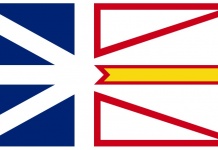 CBC News reports on rising opposition to the “anti-counterfeiting” treaty ACTA, which is being negotiated in secret among the United States, Australia, Canada, the European Union, and a number of other governments.
CBC News reports on rising opposition to the “anti-counterfeiting” treaty ACTA, which is being negotiated in secret among the United States, Australia, Canada, the European Union, and a number of other governments.
This treaty, which often looks a lot more like a copyright treaty than a counterfeit-goods treaty, could have profound implications for many ordinary Internet users (including e-book readers), such as imposing a “three-strikes” provision that would cut off Internet access to accused infringers.
The article states that the next round of ACTA negotiations kicked off today, and a number of activist organizations have jointly announced a “declaration of war” on the treaty. (The article does not link to the full text of this declaration, however, and Google was not able to turn it up.)
Ars Technica reports that “transparency” is on the ACTA committee’s agenda for discussion on Friday, but that doesn’t necessarily mean there actually will be any.
The treaty, which we have touched upon a number of times already, has been shown through leaked documents to include a remarkable number of anti-consumer provisions that seem aimed more at enforcing copyright law than preventing counterfeiting. Canadian copyright activist Professor Michael Geist puts it this way:
"To call it an anti-counterfeiting treaty is to sell it short. There would be broad support for that sort of treaty. This is a copyright treaty," Geist said. "It’s astonishing to see this take place outside the norm of where copyright treaties are typically discussed. It’s misleading."
On his website, Geist reports (in reference to a member of Parliament raising concerns about ACTA in December):
Industry Minister Tony Clement responded by arguing that the ACTA is not law in Canada, stating that it is "subservient" to domestic law. While that is true for the moment, once it is completed the pressure to implement – much like the WIPO Internet treaties – will be enormous.
Thanks largely to the actions of activists such as Geist, Canada has a much better track record of opposing copyright rights-grabs than the US. Hopefully their efforts to force more openness in ACTA will bear fruit on behalf of consumers in all affected nations.































